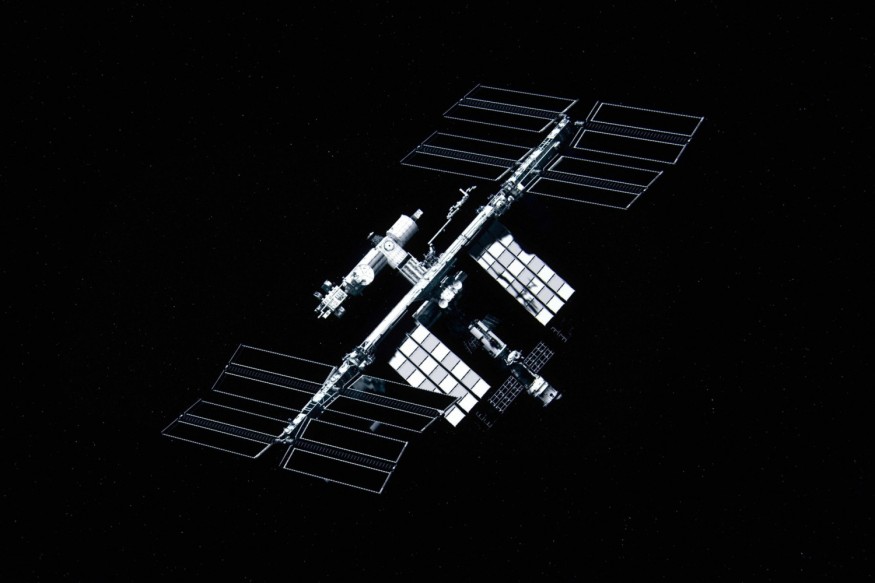The Russian space agency, Roscosmos, recently unveiled the Russian Orbital Service Station (ROSS), the country's brand-new space residence, after deciding to leave the International Space Station (ISS) for good.
An exposition for Russia's military industry in Moscow included a miniature model of the finished station built by RSC Energia, the division of Roscosmos responsible for creating the station's modules.
The space station resembles a sci-fi space wheel and is covered in various solar panels. It is furnished with modules, including one for tourism, that radiate from a central hub in four directions. Oryol, Russia's brand-new reusable spacecraft, is also shown parked at the station.
Roscosmos displays a model of the proposed Russian Orbital Space Station at the Army 2022 convention. The model shows a fully built-out station ("base, scientific and energy, nodal and gateway modules," according to Google Translate) https://t.co/BXBWh1RfPx (in Russian) pic.twitter.com/bXvQb9mxis
— ISS Archaeology (@ISSarchaeology) August 15, 2022
Russia's 'Ross' Space Station
The space station model, dubbed "Ross" by Russian state media, was revealed by Roscosmos on Monday, August 15, at a military expo outside of Moscow.
The occasion featured remarks by Yuris Borisov, the new head of Roscosmos who was selected last month to succeed Dmitry Rogozov.
He reaffirmed that Russia will leave the ISS after 2024 and that it is developing its space station.
With the dissolution of the ISS alliance, a decades-long international scientific relationship that many had looked to as a harbinger of optimism and peace comes to an end.
A U.S.-Russia-led partnership that included Canada, Japan, and the European Space Agency (ESA), launched the International Space Station (ISS) in 1998.
NASA said, per Interesting Engineering, that it has not yet received official confirmation from Russia of its pullout despite its recent announcement that it intends to keep the ISS functioning through 2024.
The American space agency believed Moscow would continue to work with the proposal to build an orbiting outpost until 2028.

'Ross' Space Station vs. International Space Station
The management of the Russian station will differ from that of the ISS. It is not intended to be manned all the time. Instead, cosmonauts will remain for a total of two years.
According to Interfax (via Daily Mail), the price tag for Russia's new space station would be $6 billion.
Vladimir Solovyov, the flight director for the Russian component of the International Space Station, mentioned that the docking station is known as the Nauka module, and it docked with the ISS last year.
Roscosmos will initially build the 'Scientific and Energy Module' and a docking module with six stations for cosmonaut capsule departures.
Russia, however, changed its mind and said it would maintain its cosmonauts on the ISS until 2028.
According to Solovyov, Russia must stay aboard the station until the Russian Orbital Service Station (ROSS) is operational.
Scheduled Launch of 'Ross' Space Station
Although a little fanciful, Inverse wrote that Roscosmos's schedule for ROSS seems considerably more promising.
The Oryol, a brand-new supply ship and transport vehicle will be used to launch the station in two stages. A four-module station with full functionality would be constructed in the first stage.
NEM-1, the station's central module, was initially intended for the International Space Station (ISS) as a research and energy module. The NEM-1 received upgrades throughout time and became the nucleus of Russia's future space station.
During the second phase, Russia will offer two additional components and a service platform. According to Russian media, the first phase will begin in 2025, followed by a crew launch in 2026. However, some Roscosmos sources have claimed that the first phase might begin as early as 2030. The second phase may perhaps go all the way to 2035.
Overall, the Russian space agency isn't exactly regarded as dependable, and even under ideal circumstances, delays are common. Some analysts believe a miracle would be required even to get ROSS off the ground. Furthermore, it is hard to predict how ROSS's aggressive schedule would be impacted by the current conflict in Ukraine and the ensuing sanctions, some of which have already reached the previous director of Roscosmos.
RELATED ARTICLE : Space Tragedies: NASA Astronauts Trapped in 'Gas Cage,' International Space Station Witnessing 1 Shortest Spacewalk, and More
Check out more news and information on Space in Science Times.
© 2026 ScienceTimes.com All rights reserved. Do not reproduce without permission. The window to the world of Science Times.












